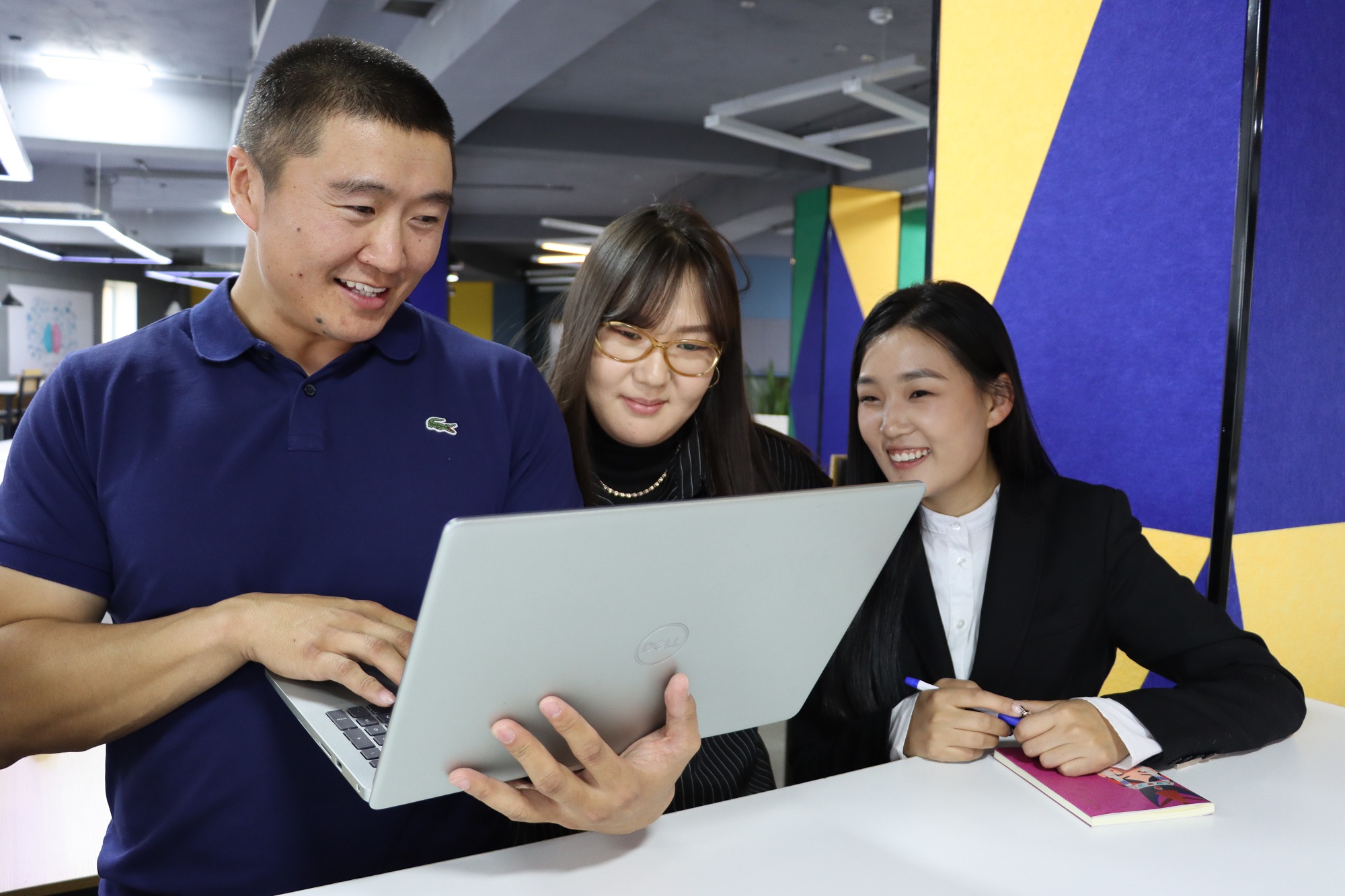Q: What has changed in you since you started participating in the program?
After participating in the "Youth Urban Leader" program, I realized for me personally, "I must participate, I must become involved". I used to discuss with my close friends the problems I was facing on the street and in my neighborhood. Following the training, I felt strongly that I should be socially active and responsible, and that I should collaborate with the committee and the district. Even after the project ended, the participants are still trying to make a difference in the lives of others, to enact what you believe is correct. Behind each of these 11 young leaders, 2-3 friends have learned that "such centers exist in Bayankhoshuu and Selbe, where they can study and work”. Several of my friends, for example, have learned such information.
Q: The Youth Urban Ambassadors were trained by the program's 11 Youth Urban Leaders. Could you please elaborate?
The "Youth Urban Leaders" divided up the training modules and trained the youth in the "Youth Ambassador Program." This program's goal was to increase meaningful participation by youth, develop their soft skills, continue advocacy activities, and conduct a youth situational analysis by surveying youth living in their neighborhoods. We held trainings at the business incubators "Bayankhoshuu" and "Selbe." "I just found out that there is such a center here," the youths who took part in the training told us. From their responses, I realized that youth are not very well informed.
Q: What do you believe youth are lacking? Please elaborate what should be made?
Young people have a lot of ideas and solutions. However, we are not well informed about where and how to begin to implement them, and many obstacles are encountered in the process. I leave things as they are for these reasons, and I forget about the issues because I have to work. I believe that if all permits and requests were electronic in the future, more youth would put their innovative ideas into action. Mongolian youth elect their government, but they do not monitor it or demand accountability, but simply leave it as it is. But after making a decision, youth should participate intelligently and demand that they take responsibility for their actions.

